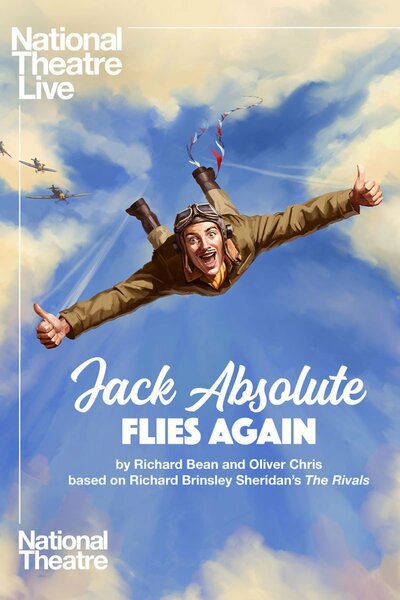
Critic Reviews (10)
"Mark Thompson’s design illustrates the production’s sweet spot: a technicolour combination of comic book and live action, Englishness as an aesthetic and a myth. 'Jack Absolute' is more content to cuddle up to that myth than to seriously challenge it, but as pure summer fizz, it goes down a treat."
Read more
"This knowing mix of satire, filth, clowning, pastiche, wartime derring-do and romance absolutely hit my sweet spot. It won’t be to everyone’s taste, but not even the hardest heart could entirely resist its machine-gun barrage of humour."
Read more
"This is the second consecutive show at the National to glance nostalgically back at a bygone Britain and present a sentimentalised picture. For me, at almost three hours on its final preview night, this comedy felt forced, unoriginal and drawn out."
Read more
"It’s funny. It’s fine. We all need a chuckle at the moment. But ‘Jack Absolute Flies Again’ isn’t anything more than the sum of its laughs. "
Read more
"There isn’t room to summarise all the complications of the plot. Suffice to say that Quentin delivers her fruity double entendres with aplomb, and even gets a chance to reveal her talent as a vaudevillean."
Read more
“Where things start to go awry is when Jack Absolute Flies Again starts not being a comedy. It’s set during the war, there are difficult moments to explore, but this play tries to be too many things at once. The result is a near-three-hour long show, and towards the end you start to realise you really can have too much of a good thing”
Read more
"The performances are uniformly (no pun intended) superb, and the company have an infectious joie-de-vivre. ... Although the pandemic delayed its premiere, 'Jack Absolute Flies Again' proves the perfect tonic to the miserable few years we have been through."
Read more
"If the play is guilty of trying too hard, and is a tad one-dimensional, it’s also fair to say that once it breaks through the clouds and we’ve taken our seat belts off, 'Jack Absolute Flies Again' does settle into a veritable hoot."
Read more







